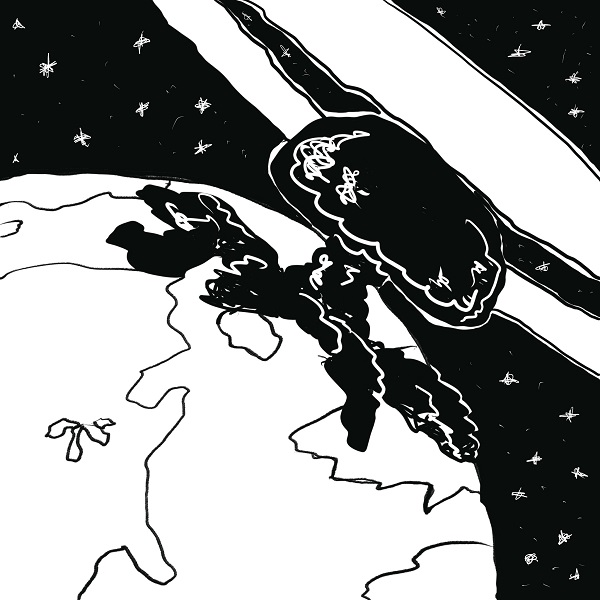
Options for an apocalypse
In the later books of one of the old grandmasters of science fiction,1 the universe is imagined much like Joss Whedon presents it in Firefly, a frontier that humans come to inhabit widely. One in which other intelligent life is never found. At some point in the grandmaster's old books one of the major characters observes that humans are widely enough distributed that it's hard to imagine the race ever going extinct.
So that's one option.
But here's another option: that humanity ends, probably before we ever figure out decisively whether or not we are alone in the universe or not. So, okay, fine. That feels more likely, but how will it all come crashing down?
In my prior post I said I was putting together an idea on something new and this question is pretty critical. How could the world end? In other words, what would be the end of humanity?
So here's what I've come up with:
- Biblically. I say biblically but why limit this to the Hebrew God? Let's just say: one of those very old tomes proves right. Fire! Brimstone! A face in the sky yelling: "You never listened!" The idea has been around too long not to at least list it, so here it is.
- Violent annihilation ad hominem. We usually tend to think of this as war — most likely nuclear annihilation, and that seems credible. But who knows? We are an inventive species! Maybe we'll do it with chemical warfare? Or a biological agent? Or a biological-chemical accident?
- A super disease. This one doesn't come up a lot, perhaps because I think we all assume that evolution always has a way out of a total biological threat. It's life itself's defense mechanism. The only science fiction I can think of that really grapples with this option is Kurt Vonnegut's Galapagos, and event then a few "humans" lived on to eventually evolve into semi-intelligent sort of manatee-like things. Probably an upgrade really. Also by the way — not his best book. Try Bluebeard if you want a deep cut of Kurt.
- Ecological starvation. We drive the planet so hard that it can't support big bipeds anymore and we drop off enough until we ultimately get eaten by what can still get by after us. This is probably the "not with a bang but a whimper" school of final days.
- Enslavement. The two most likely tribes of slavers: robots or aliens. Could be either. Lewis Trondheim has a great graphic novel called Astronauts of the Future about a little boy and a little girl who don't really get along with anyone. One of them thinks that everyone is a robot and the other thinks they are all aliens. It turns out they are both right. Anyway, it could be that humans aren't exactly exterminated but put to use by a more powerful group. Maybe even demons?
- Plenty. What if we just sorted out all the problems of scarcity? It would no longer be interesting to be a human if we achieved perfect plenty. That is, not only was there more than enough for everyone to have what they needed, but no one even needed to input labor to get it. This is a conceivable future. With some combination of artificial intelligence, asteroid mining, green energy and genetic engineering we could have a world that basically automatically generated all the basic resources and luxury resources humans needed to survive. Assuming the robots didn't decide to kill us or rule us and just did our work, then we'd be in this state where striving is over. That also seems like the end of humans, at least the end of humans being very interesting.
Obviously that last one is pretty controversial, but it's also the whole point of writing this post to be completely honest. Let's imagine that we crack climate change, crack artificial intelligence, crack astreroid mining but also figure out that we'll never get beyond our own solar system. What then?
Meditation retreats?
If anything is the end of history, if anything is little more than waiting for the heat death of the universe, it seems like that would be it.
Oh sure, there'd be a great many rows ahead, but I think deep down we would know (or at least some portion of us would know) that none of them really mattered.
Imagine that!
—Brady Dale
June 17, 2019
1 — Robert Heinlein. No one really likes him anymore. His views on things seem a bit dated.
I think the moment I'm referring to is in The Notebooks of Lazarus Long, but anyway it's one of those books.